Related Research Articles
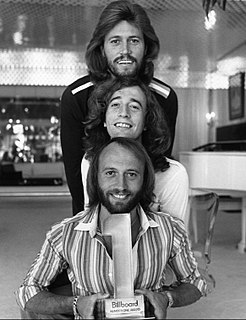
The Bee Gees were a music group formed in 1958. Their lineup consisted of brothers Barry, Robin, and Maurice Gibb. The trio were especially successful as a popular music act in the late 1960s and early 1970s, and later as prominent performers of the disco music era in the mid-to-late 1970s. The group sang recognisable three-part tight harmonies; Robin's clear vibrato lead vocals were a hallmark of their earlier hits, while Barry's R&B falsetto became their signature sound during the mid-to-late 1970s and 1980s. The Bee Gees wrote all of their own hits, as well as writing and producing several major hits for other artists. The Bee Gees are widely referred to by many critics, media outlets and fellow artists as the "Kings of Disco".
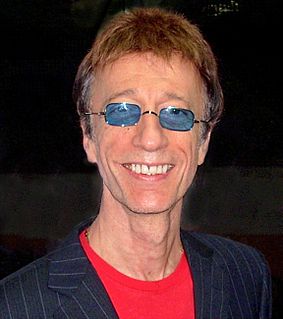
Robin Hugh Gibb was an English singer, songwriter and record producer, who gained worldwide fame as a member of the pop group the Bee Gees with older brother Barry and fraternal twin brother Maurice. Robin Gibb also had his own successful solo career. Their younger brother Andy was also a singer.

Maurice Ernest Gibb was an English musician, singer, songwriter and record producer who achieved fame as a member of the Bee Gees. Although his elder brother Barry Gibb and fraternal twin brother Robin Gibb were the group's main lead singers, most of their albums included at least one or two songs featuring Maurice's lead vocals, including "Lay It on Me", "Country Woman" and "On Time". The Bee Gees were one of the most successful rock-pop groups of all time.

Sir Barry Alan Crompton Gibb is a British-American musician, singer-songwriter and record producer who rose to worldwide fame as a co-founder of the group Bee Gees, one of the most commercially successful groups in the history of popular music. With his younger brothers, twins Robin and Maurice Gibb, he formed a songwriting partnership beginning in 1955. He has lived in Britain, Australia, and the United States, holding dual UK–US citizenship.

Cucumber Castle is the seventh studio album by the Bee Gees, released in April 1970. It was produced by Barry Gibb, Maurice Gibb, and Robert Stigwood. It consists of songs from their television special of the same name, which was named after a song on their 1967 album Bee Gees' 1st. Cucumber Castle is the only Bee Gees album not to feature any recorded contributions from Robin Gibb, as he had left the group before the album was recorded.

Horizontal is the fourth studio album by the Bee Gees, and their second album to receive an international release. The LP was released in early 1968, and included the international hit singles "Massachusetts" and "World". On 5 February 2007, Reprise Records reissued Horizontal with both stereo and mono mixes on one disc and a bonus disc of unreleased songs, non-album tracks, and alternate takes. The album was released in Polydor in many countries and on Atco only in the US and Canada. "And the Sun Will Shine" was released as a single only in France. The influences displayed on the album range from the Beatles to baroque pop.
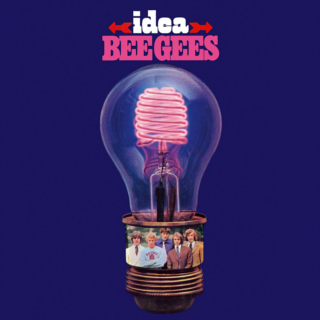
Idea is the fifth album by the Bee Gees. Released in September 1968, the album sold over a million copies worldwide. The album was issued in both mono and stereo pressings in the UK. The artwork on the Polydor release designed by Wolfgang Heilemann featured a "beehive" neon lightbulb with a group photo in its base, while the North American ATCO release designed by Klaus Voormann featured a composite head made from each band member. It was their third internationally released album - the first two albums being released only in the Australian market.
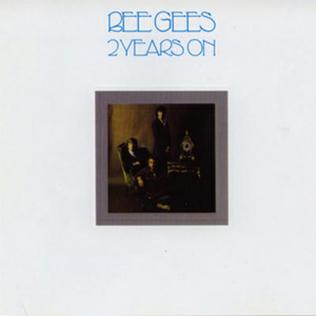
2 Years On is the eighth studio album released in 1970 by the Bee Gees, which reached No. 32 on the US charts, and sold 375,000 copies worldwide. The album saw the return of Robin Gibb to the group after an earlier disagreement and subsequent split following Odessa. 2 Years On was the first album with drummer Geoff Bridgford, who remained a full-time member of the group until 1972 although he was not pictured on the sleeve. The best-known track is "Lonely Days". Released as the first single by the reunited brothers, it charted high in the US, but peaked at No. 33 in the United Kingdom.
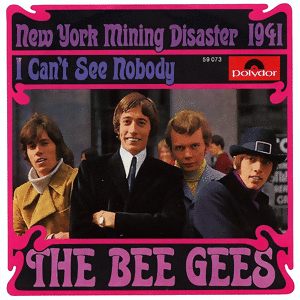
"New York Mining Disaster 1941" is the debut American single by the British-Australian pop group the Bee Gees, released on 14 April 1967. It was written by Barry and Robin Gibb. Barring a moderately successful reissue of their Australian single "Spicks and Specks," it was the first single release of the group's international career and their first song to hit the charts in both the UK and the US. It was produced by Ossie Byrne with their manager Robert Stigwood as executive producer. The song was the first track of side two on the group's international debut album, Bee Gees' 1st. This was the first single with Australian drummer Colin Petersen as an official member of the band.
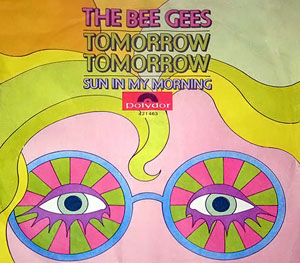
"Tomorrow Tomorrow" is a song by the Bee Gees written by Barry and Maurice Gibb. The song was originally intended to be recorded by Joe Cocker. It was the first Bee Gees single released after Robin Gibb had quit the group which was now down to a trio featuring Barry Gibb, Maurice Gibb, and drummer Colin Petersen.
Lori Balmer is an Australian pop singer, recording artist and worked as a session singer and model; and has appeared on TV in Australia, United States, Japan, Europe and Britain.
"I Can't See Nobody" is a song by the Bee Gees, released first as the B-side of "New York Mining Disaster 1941". With "New York Mining Disaster 1941", this song was issued as a double A in Germany and Japan., and included on the group's third LP, Bee Gees' 1st.

"Let There Be Love" is a ballad performed by the Bee Gees, It was written by Barry, Robin and Maurice Gibb and released as the opening track on the 1968 album Idea. It was also issued as a single in the Netherlands in 1970, peaking at number 16. The group performed this song at 192 TV in 1968.
"The Singer Sang His Song" is a song written by Barry, Robin and Maurice Gibb and recorded by the English rock group Bee Gees, released in early 1968 as a single along with Jumbo. In some countries the song was the B-side of Jumbo but in others they were promoted as a double A-side.

Robin's Reign is the first solo album by singer Robin Gibb, a member of the Bee Gees with his brothers Barry and Maurice. Robin had left the group following a disagreement with his brother Barry over who should sing lead vocals. The album was not a commercial success, though it did spawn Gibb's solo hit, "Saved by the Bell". The other songs in the album were produced by Gibb, and the rest was produced with his manager, Vic Lewis. This album was reissued by RSO Records in 1978 and reissued in 1991 on Spectrum Records. The album had a limited CD release in Germany and was made available digitally on Amazon and Spotify in 2011 and iTunes the following year. Gibb would not release another solo album until 1983.

Secret Agent is the third solo album by English singer Robin Gibb, released in 1984. The album enjoyed limited success, mostly in Europe and Australia. The lead single "Boys Do Fall in Love" made the Top 10 in Italy and South Africa.

"Morning of My Life" is a song written by Barry Gibb in 1965 whilst in the town of Wagga Wagga, Australia and later recorded by the Bee Gees and several other artists. It was recorded in 1966 during sessions for the album Spicks and Specks, and later was released as the opening track on the compilation Inception/Nostalgia in 1970. The first recording of the song to be released by any artist was by Ronnie Burns, first as a B-side to his Exit, Stage Right single in June 1967 and a month later on his Ronnie LP.
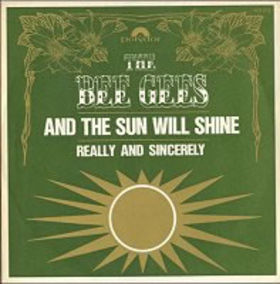
"And the Sun Will Shine" is a song by the British rock band Bee Gees, it was written by Barry Gibb, Robin Gibb and Maurice Gibb and released in February 1968 on the album Horizontal. The song's opening chord was D7, consisting of the notes D, F♯, A, and C.
"Who's Been Writing on the Wall Again" is a song written by Barry Gibb in 1965. It was first recorded by Jenny Bradley and was released in 1965 on Leedon Records.
"Kilburn Towers" is a folk song by the Bee Gees. Written by Barry, Robin and Maurice Gibb in 1968 for the album Idea. It was also released as the B-side of "I Started a Joke" in most territories. This song's length was 2:14 in mono and 2:17 in stereo. The song was produced by the group's manager Robert Stigwood and the Bee Gees. The song was written about the Sydney ocean apartment buildings, Kilburn Towers, built in 1960.
References
- ↑ The Bee Gees at Strange Brew UK
- ↑ Lori Balmer - Treacle Brown / Four Faces West
- ↑ Brennan, Joseph. "Gibb Songs: 1968" . Retrieved 14 July 2013.
- ↑ Hughes, Andrew (2009). The Bee Gees: Tales of the Brothers Gibb. ISBN 9780857120045 . Retrieved 14 July 2013.